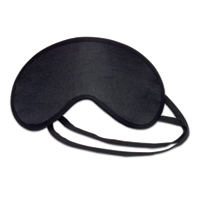The dictionary states that a refugee is ‘a person who has been forced to leave their country in order to escape war, persecution, or natural disaster.’
Okay, we weren’t forced to flee our country of Kenya but with the COVID-19 virus, doesn’t it count as a natural disaster? Conspiracy theories aside, it definitely has thrown a spanner in the works for billions of people.
Lives have been lost, livelihoods destroyed, families separated, lots of online fearmongering.
I know of quite a few people, who like us, have been totally displaced and nothing we do can plan for the future. The very Sunday before we were locked down in New Zealand, we were at a church and as I was speaking to a lady there, her son and soon-to-be daughter in-law were meant to get married that Saturday. They had travelled from England to get married in front of their families. They left their homes, jobs and friends and like us, are now stuck here without any idea of when they can return. On one of our daily walks with the grandkids I’ve met a man whose wife is back in England and he is locked down here while visiting their grandkids. Another friend was out from Tanzania was visiting family, with her husband back home, and again, can’t get back.
These are but a few of the hundreds of thousands of people in the same boat.

Lockdown means something different in every country. In New Zealand for 4 weeks the only time you were permitted out of your house was to go out for fresh air or one family member to visit the supermarket. I broke a tooth so had an online appointment with a dentist and then went in the next day to get it fixed. Their doors were locked, so had to let them know when I arrived, I had to use hand sanitizer and then glove up.
For most, they are bunked down at family or friends homes. They have no income and no way to even think of employment in a country they haven’t lived in for decades. The only clothes you have are the few you packed for a short trip, and the weather is changing.
We are SO grateful to our daughter and son-in-law who have allowed us to bunk on an airbed at their place. We get to see our grandkids every day and can fit some work in between entertaining them. One of the things I’ve always said is that I love my kids, but I don’t want to live with them. For the first 5 weeks of lockdown I didn’t even unpack my hand luggage which has all of my clothes. It was easier to deny than to accept the situation.
As development workers we solely rely on our friends and family for financial support. Thankfully we have not seen a drop in donations, but we only live on $500 a week and a lot of that goes on rent and other expenses we are still paying for in Nairobi. You get something like a broken tooth that costs you $450 and it leaves you really stretched for important items like food. Without the support of our kids I have no idea what we would do. It’s also put them out a lot. Luke has to teach online so a lot of the time he has to hide in the kids room. They were going to put 6 month old Naomi into the room we’re sleeping in, but now can’t. Sure, we’re giving back where we can but for people who are hosting us refugees, it’s a real labour of love. Good news is, we haven’t killed each other yet.
We anticipated that we would be speaking most of the time in schools or business groups so would be wearing one of two dresses I packed. Besides that, it’s black tee shirts and jeans. Oh for some variety.
Like everyone else, lockdown is a mental challenge, not just a physical one.
The big question on every human’s mind is ‘when will this end’ or more importantly ‘when will life get back to normal’?
For we refugees, the big question is ‘when can we go home’? Sure, airlines are giving credit for cancelled flights but then you have to pay the price difference when you rebook and where do you find the cash for this? It was heartbreaking to cancel our trip to Hawaii for a conference and then slowly cancel all of the other flights. I had got such sale prices on all of our flights that we will need to find thousands of dollars to rebook.
Of course for us this was meant to be our big fundraising tour for the year. It has caused us to rethink how we do things and bring plans forward a year. Storage facilities, online meetings, making sales via Facebook. We’re doing what we can to bring in funds to keep our staff and projects going but we will have a big shortfall in 2020.
We’re not the only ones though. It’s affecting thousands of development organisations like BeyondWater. People are being laid off from work, projects can’t operate because of a drop in funding and vulnerable people are in even more dire situations than ever before.
So, what does a refugee do in a situation like this? Like everyone else we take one day at a time and hope that we all adjust to the new ‘normal’ future we all will have to embrace. It is also a huge bonus that we have a personal faith that rests on such scriptures as Romans 8:28 ‘And we know that in all things God works for the good of those who love him, who have been called according to his purpose.‘






















